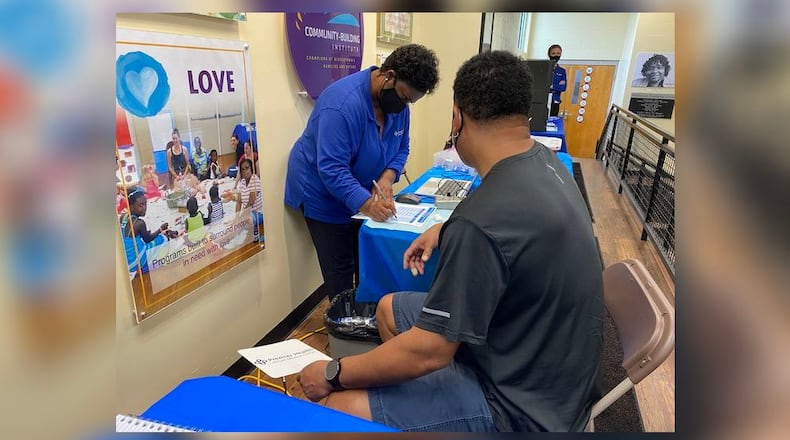“Disheartening,” said Dr. Andre Harris, who serves as chief medical officer and vice president of operations at Atrium Medical Center.
April is Minority Health Month and health officials throughout the region said it’s the perfect time to address the heath disparities between minorities and whites.
Harris, who oversees more than 450 physicians at the hospital and runs an OB/GYN practice at Horizon Women’s Healthcare in Dayton, called the reasons for the differences in diagnosis and outcomes “multi-layered” and very complex.
Those reasons include racial issues, affordable and accessible health care in the Black community, the lack of Black physicians, lower incomes and food deserts.
He said the answer to the higher rate of death has to be more complex than Blacks are “built wrong” because their ancestors survived slavery.
Credit: Will Jones
Credit: Will Jones
As president of Gem City Medical Dental Pharmaceutical (MDP) Society, an association of local Black health care professionals, Harris said the number of Black physicians hasn’t increased dramatically in the last 50 years. He said “a pipeline” needs to be created to draw more Blacks into the health care profession.
Black physicians are needed, he said, because they bring “different life experiences, a different set of views” that are needed to better care for and gain the trust of Black patients. He said the same could be said about other ethnic or religious groups.
’That created a layer of trust’
Jackie Phillips, city of Middletown health director, said it was difficult gaining the trust when it was time to give COVID-19 vaccinations within the Black community.
When she organized vaccination clinics in a predominantly Black church, she made sure that race was well represented by those working registration and distributing the vaccine.
“It’s important that they saw people who looked like them, people they knew,” said Phillips, who is Black. “That created a layer of trust.”
Also, she said, Black people sometimes have difficulty accessing medical care and receiving equal care to white patients.
“If you go to a restaurant and you’re mistreated, why would you go back?” she said. “There are so many cultural barriers and when you put all the layers on top, you will get a poor outcome. It’s frustrating every time something happens and we are surprised our numbers are poor.”
Studies show the “more money you have, the longer you live,” according to Phillips.
Atrium Medical Center has taken steps to try to reduce mortality rates among Black mothers and babies.
Among all racial groups in the U.S., Black women have the highest maternal mortality rates, and Black babies have the highest infant mortality rates.
Atrium Medical Center’s CenteringPregnancy program is a partnership among the hospital, the Butler County Partnership to Reduce Infant Mortality (PRIM), and the Ohio Department of Medicaid aimed at addressing the county’s high infant mortality rate.
The number of Ohio infants who died before their first birthdays dropped to 929 in 2019 from 938 in 2018, marking a third straight year of decline, according to the Ohio Department of Health 2019 Infant Mortality Report.
There were 356 Black infant deaths in 2019, an increase of 17 from 2018. But this was still lower than 2015, 2016, and 2017.
However, the racial disparities gap continues to widen, with Black infants being 2.8 times more likely to die than white infants. The number of white infants that died in 2019 was 518, the lowest number in the past 10 years.
Danielle Hunter, community health worker for Maternal Health Clinic, works with expecting mothers throughout Butler County. The mothers attend numerous classes, then Hunter meets with them and their babies until the child’s first birthday.
Hunter, who lost a premature daughter, said the classes address safe sleeping procedures, breastfeeding techniques, domestic violence and how to properly massage your baby. The organization provides formula, diapers, clothing and a pack and play, she said.
The center started the group meetings in response to Southwest Ohio’s high rate of infant mortality, said Mary LeVan, nurse manager of the Maternal Health Clinic at Atrium.
Priority enrollment is given to Black women, said LeVan, who added Black mothers sometimes struggle with transportation availability and acquiring the proper medications.
To join CenteringPregnancy, participants must be Butler County residents and on a Medicaid health plan, she said.
About the Author


